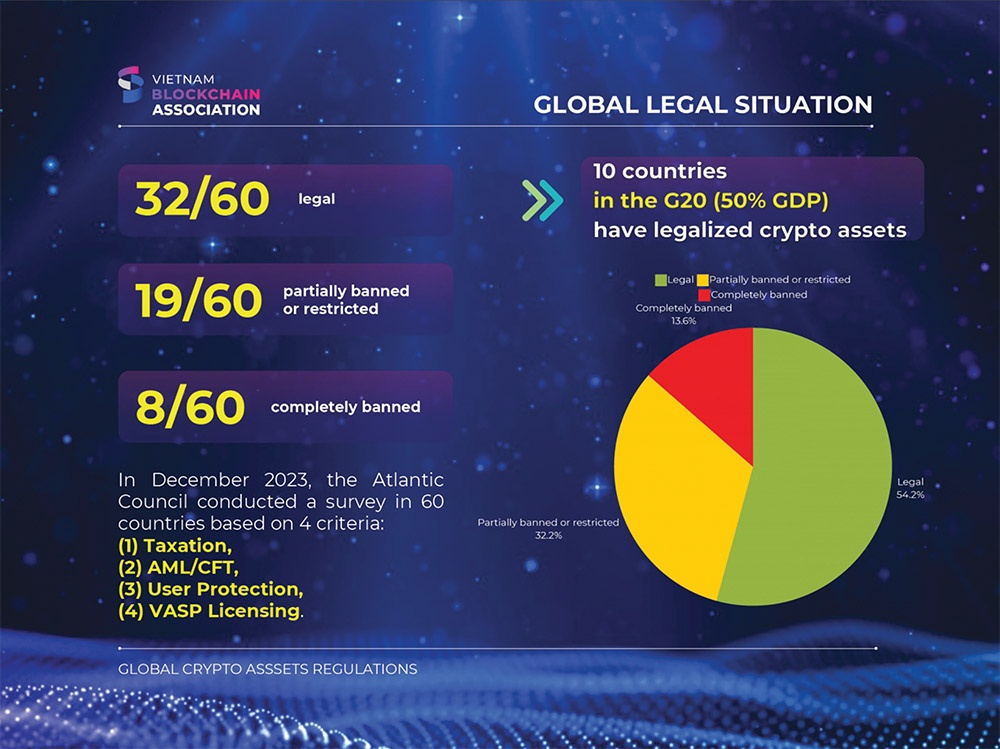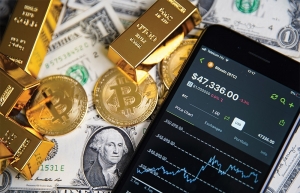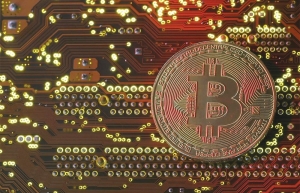INTERNATIONAL INVESTMENT
AND PORTAL
Consultation between the business community, associations, and government regulatory agencies is reaching the final stages before the official issuance of the legal framework on virtual assets by the government in May next year.
Chief inspector Do Viet Cuong of the State Bank of Vietnam’s Thua Thien-Hue province branch, outlined the current viewpoint of the Ministry of Justice not to ban virtual assets. However, since this term is not mentioned in law, they are not protected by legal regulations.
“This is a shortcoming in the legal framework because virtual assets are no longer just a trend but will continue to exist and develop, not only in Vietnam but globally,” Cuong said.
Under a report from Boston Consulting Group, the total value of global digital assets is projected to reach $16 trillion by 2030, accounting for 10 per cent of global GDP. In Vietnam, virtual assets generated a cash flow of approximately $120 billion from July 2022 to July 2023, marking a 20 per cent increase compared to 2021-2022, as reported by the US’ blockchain analysis firm Chainalysis.
The virtual asset market has a significant impact on the underground economy, encompassing both legal economic activities that are not declared, primarily involving cash transactions without invoices, and illegal economic activities such as the trade of banned goods, smuggling, and gambling. Chainalysis estimated that the total profit of global cryptocurrency investors reached $37.6 billion last year, with Vietnam ranking third globally, with approximately $1.2 billion in profit.

Benefits of proper management
At the Global Insight conference on a legal framework for virtual assets and related service providers held last week, Le Hoai Nam, founder of virtual asset startup Hold Station, stated that the Vietnamese economy is being driven by those born in the 1980s and 1990s – generations which have grown up in a context of strong technological development, and familiar with activities related to virtual assets such as in-game item trading.
“Vietnam is a promising market for virtual asset service providers,” Nam said. “The younger generation in Vietnam has a passion for technology and is invariably welcoming to new things. As they increasingly engage with virtual assets, it paves the way for involvement in the financial and economic sectors.”
Furthermore, virtual assets will facilitate faster transactions and trading, thereby boosting profits for businesses and individuals.
“However, investors will face the risk of fraud due to the novelty of virtual assets. Providing reliable and licensed virtual asset services will help protect users and maintain safety in this field. I hope to obtain a licence to operate in the Vietnamese market and become a reputable provider of services that safeguard investors and users,” Nam said.
According to cryptocurrency payment company Triple A in Singapore, in the freelancer market in Vietnam, a staggering 85 per cent of freelancers own virtual assets due to the global nature of their work, and 35 per cent of them accept payment in virtual assets despite violating regulations as payments are not conducted through traditional payment channels or channels regulated by the state banks. Among them, almost 60 per cent of the workforce using virtual assets are active in the financial market.
Based on this, a representative of the Vietnam Blockchain Association raised the question of blockchain and virtual assets as part of the underground economy.
“Vietnam needs to develop policies to manage virtual assets to gradually transition this economy and virtual assets to a more transparent one, thereby contributing to economic growth,” he said. “If Vietnam prohibits or avoids implementing regulations on management of this, it will miss out on opportunities. In the future, we may be able to collect taxes from virtual assets, similar to the revenue generated from securities transactions.”
In June 2023, the Financial Action Task Force (FATF) placed Vietnam on its grey list. According to the International Monetary Fund, countries on the list may experience a reduction in investment capital equivalent to 7.6 per cent of GDP. This includes a decrease in foreign direct investment by 3 per cent of GDP and a reduction in capital through the banking system by 2 per cent of GDP.
Positive signals
At a Ministry of Justice (MoJ) conference last month, Cao Dang Vinh, deputy director of the MoJ’s Economic and Civil Legislation, stated that the ministry had expressed the viewpoint of not prohibiting but rather building a legal framework to manage and regulate virtual assets.
“Other countries are also focusing on the management of the circulation and trading of cryptocurrencies,” Vinh said.
According to lawyer Tran Quoc Bao from Pantheon law firm, Vietnam must accelerate preparation of a legal system to regulate digital assets and service providers.
“We are highly hopeful that the government will establish appropriate regulations in line with international standards to optimise tax revenue, protect users, combat money laundering, and prevent terrorist financing. If virtual assets are banned, we will completely miss out on a new generation of investors who are very interested in Vietnam,” Bao said.
Vietnam has a 20 per cent cryptocurrency ownership rate among its population, according to Crypto Crunch, and is becoming an appealing destination for foreign financial investors, especially when the government has placed strong emphasis on developing its digital economy and fintech sector.
But according to Bao of Pantheon, 70 per cent of countries do not yet have a legal framework to govern virtual assets or related exchanges. In this region, Thailand and Singapore have taken a very open approach to this field, while Vietnam is currently in the research phase.
“Many startups in virtual assets and virtual asset exchanges have had to establish themselves abroad before returning to operate in Vietnam. Vietnam should consider implementing legal policies to enable Vietnamese blockchain enterprises to operate legally within the country, thereby contributing to the development of the economy,” Bao said.
According to a survey conducted by the US’ think-tank Atlantic Council in December, 32 nations currently recognise virtual assets as legal, while 19 partially prohibit them, and eight completely ban them. Notably, all 10 G20 countries, which account for half of global GDP, have enacted regulations for managing virtual assets and related service providers.
In Vietnam, there have been almost 20 relevant documents issued regarding virtual assets and their service providers. In the latest, Decision No.194/QD-TTg was issued in February to implement the national action plan to fulfill the commitments of the Vietnamese government in anti-money laundering, counter-terrorism financing, and combating the proliferation of weapons of mass destruction, with the aim of removing Vietnam from the FATF grey list.
Cryptocurrency market experiencing a sell-off
According to data from US company CoinMarketCap, the price of Bitcoin unexpectedly plummeted at the beginning of May and is currently trading around $60,200 per BTC. With this correction, the market capitalisation of Bitcoin has contracted to $1.185 trillion, down 17 per cent from its peak in March. The reason is partly due to the excitement surrounding spot exchange-traded funds (ETFs) in the US market with digital assets fading.
Bitcoin ETFs propelled Bitcoin to a record high of nearly $74,000 in March. However, the diminishing expectations of US Fed interest rate cuts have significantly reduced the influx of capital in investing products.
As of the end of April, approximately $182 million has flowed out of 11 ETFs in the US. In contrast, in previous months, these ETFs experienced an influx of billions of dollars, with the peak being in February with $6 billion.
The Bitcoin halving event, which occurs every four years, marks a reduction in the supply of new Bitcoin entering the market. However, since its commencement on April 19, it has not had a significant impact thus far.
Binance gradually losing market share due to legal hurdles
The world’s largest cryptocurrency exchange, Binance, has witnessed a significant drop in Bitcoin trading volume from 81.3 to 55.3 per cent. As for altcoins, this ratio has decreased to 50.5 from 58 per cent, according to cryptocurrency research firm Kaiko.
Kaiko noted that in markets outside of the United States, smaller cryptocurrency exchanges are gaining momentum as cryptocurrency trading volumes recover.
Accordingly, Bybit has captured a 9.3 per cent market share of Bitcoin trading volume outside of the US in the past year, a significant increase from its previous 2 per cent share. Additionally, OKX currently holds a 7.3 per cent market share, up from 3 per cent.
Kaiko noted that platforms like Bybit and OKX are increasingly expanding their market share in Asia, while Binance continues to grapple with various legal issues.
The issues faced by Binance in the US have had a global impact on the digital asset exchange as regulatory authorities have started to exhibit a more cautious approach.
The Dubai government, while initially granting Binance FZE a full virtual asset provider licence, has delayed its approval due to the ongoing legal issues surrounding the exchange.
According to Kaiko, regulatory authorities in the Asian market are developing stricter rules for cryptocurrency services, some of which may pose challenges for Binance.
 Legal framework for managing virtual assets and virtual asset service providers discussed
Legal framework for managing virtual assets and virtual asset service providers discussed
Yesterday, the Vietnam Blockchain Association (VBA) organised a Scientific Workshop to Gather Feedback for Constructing the Legal Framework for Managing Virtual Assets, aimed at collecting opinions from entities, organisations, and individuals operating in the field.
 Strategic choice ahead for virtual asset management
Strategic choice ahead for virtual asset management
Any decision to recognise, ban, or regulate virtual assets could create conflicts of interest between traditional investors and those pursuing the digital economy sector, a conference on the issue has heard.
 Establishing and developing a virtual asset framework
Establishing and developing a virtual asset framework
With the advancement of sci-tech, numerous new transaction forms and asset types have emerged, especially the rise of virtual assets.
 Clarity sought for virtual asset future
Clarity sought for virtual asset future
Many businesses and investors involved in virtual assets are offering their ideas for a new legal route for the industry before its fate is decided next year.
 Developing virtual asset management policies
Developing virtual asset management policies
As part of the second anniversary celebration and the annual forum “Blockchain and AI: The Revolution of the Future,” the Vietnam Blockchain Association organised its fourth scientific panel discussion on April 24, aiming to develop and improve the legal framework for Vietnam’s virtual asset.



















